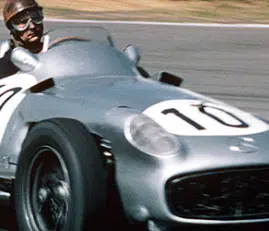It returned to F1 as an engine supplier in 1994 and enjoyed a successful partnership with McLaren for two decades. That included three drivers’ titles and the 1998 constructors’ crown before Mercedes-Benz decided to go it alone and enter a works team once more.
It acquired 2009 World Champions Brawn Grand Prix (a customer during its single, very successful season) and returned as Mercedes-Benz. “The Silver Arrows” (a colour and moniker that dates back to stripping the car’s white paint to achieve the weight limit for the 1934 French GP) were back on the grid in their own right in 2010.
Nico Rosberg won the 2012 Chinese GP but it was the arrival of Lewis Hamilton from McLaren and new rules to take the reconstituted team to a new level. Hamilton withstood a strong challenge from his team-mate to win the 2014 World Championship before repeating that success a year later.
The team was even more dominant in 2016 – winning 19 of the 21 races that season. However, it was Rosberg that emerged with the title at the final round and promptly retired from the sport at his greatest moment. The success continued unabated with Hamilton drivers’ champion for the next four seasons and Mercedes having secured its seventh successive constructors’ title in 2020.
Mercedes continued its dominance beyond 2016, with Hamilton winning the drivers’ championship in 2017, 2018, 2019, and 2020, while the team secured a record-breaking eighth consecutive constructors’ championship in 2021.
The 2021 season was fiercely contested, with Hamilton narrowly losing the drivers’ title to Max Verstappen in a controversial finale, but Mercedes still took the constructors’ crown.
In 2022, the introduction of new technical regulations brought significant challenges for Mercedes. The W13 car suffered from extreme porpoising – an aerodynamic instability leading to bouncing – resulting in a difficult season.
The struggles continued through 2023 as the W14 initially failed to deliver competitive pace, and Mercedes found itself unable to consistently challenge Red Bull’s supremacy.
Mercedes finished a distant second in the constructors’ championship behind Red Bull, with Hamilton third and George Russell eighth in the drivers’ standings.
In 2024, Mercedes secured fourth place in the constructors’ championship. At the end of the season, Hamilton departed Mercedes to join Ferrari, marking the end of an era and a significant new chapter in his career.






